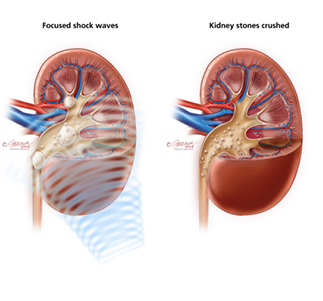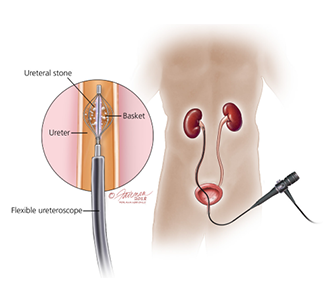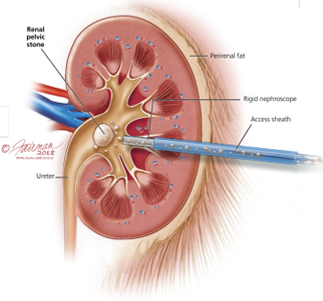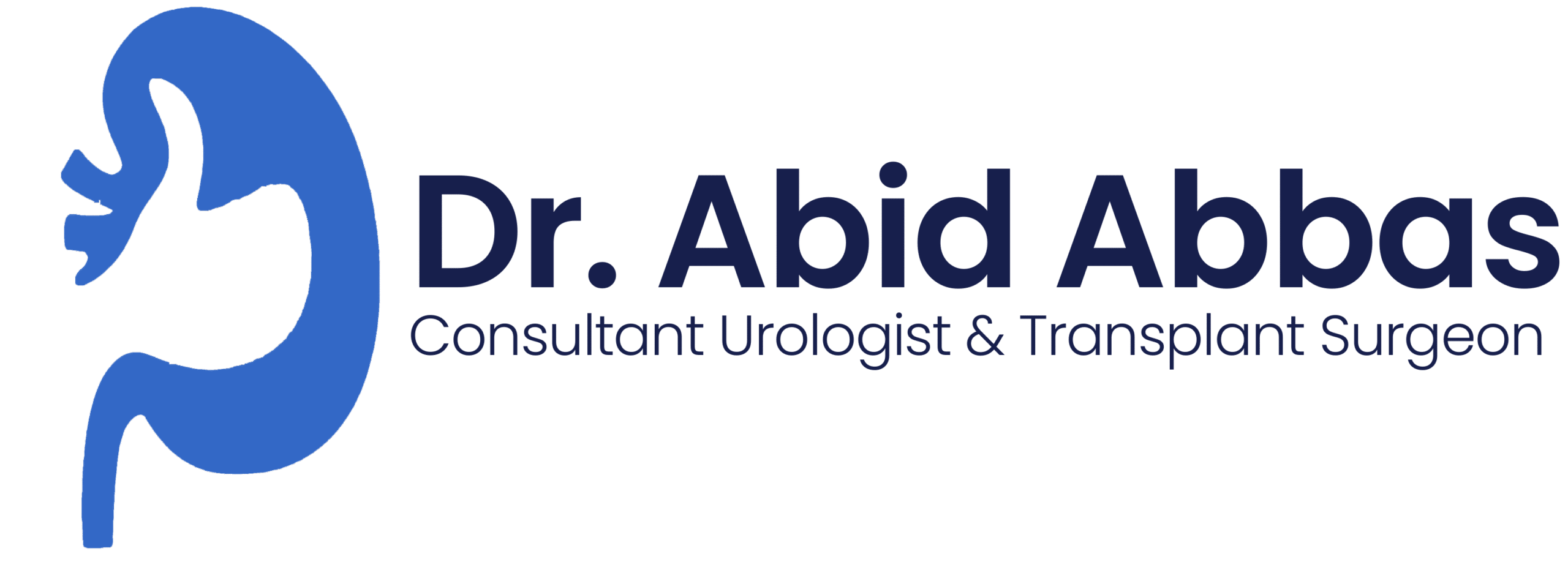Kidney Stones Patient Guide
Kidney stone disease is one of the most common problems of the urinary system and are often very painful & can keep happening in some people.
Urine* has many dissolved minerals and salts. Stones may form when urine has high levels of some of these minerals and salts. Kidney stones may start small and not cause any issues at first. However, kidney stones can grow larger in size, even filling the inner hollow structures of the kidney. Some stones stay in the kidney and will never cause any problems.
Common symptoms of kidney stones include a sharp, cramping pain in the back and side. This feeling often moves to the lower abdomen or groin. The pain often starts suddenly and comes in waves. It can come and go as the body tries to get rid of the stone.
- Sharp, Cramping Pain in the back and side
- A feeling of intense need to pass urine
- Passing urine more often or a burning feeling when you pass urine
- Nausea and vomiting.
- A feeling of pain at the tip of the penis in men.
- Urine that is dark or red due to blood
Treatment Options for Kidney Stones
Treatment of kidney stones depends on the following:
• The type of stone you have
• Location of the stone
• How bad it is
• Length of time you have had symptoms
There are different treatment choices. It is of great value to talk to your health care provider about what is best for you. Wait for the stone to pass by itself Often you can simply wait for the stone to pass. Smaller stones are more likely than larger stones to pass on their own. The stones leave by the body passing urine in a normal way. Waiting up to six weeks for the stone to pass is safe as long as the pain is bearable, there are no signs of infection, the kidney is not fully blocked and the stone is small enough

Shock Wave Lithotripsy


Frequently asked questions
Here are few Frequently asked questions:
Part of preventing stones is finding out why you get them. Your health care provider will perform tests to find out what is causing your stones. After finding out why you get stones, your health
care provider may give you tips to help stop them from coming back. Some of the tests he or she may do are listed below.
Medical and dietary history
Your health care provider will ask questions about your personal and family medical history. He or she may ask:
• Have you had more than one kidney stone before?
• Has anyone in your family had stones?
• Do you have a medical condition that may increase your chance of having stones, like frequent diarrhea, gout or diabetes?
Knowing your eating habits is also helpful. You may be eating foods that are known to raise the risk of stone. You may also be eating too few foods that protect against stones or not drinking enough fluids.
Understanding your medical, family and dietary history helps your health care provider find out how likely you are to form more stones.
Diet Tips to Prevent Stones
Drink enough fluids each day.
If you are not making enough urine, your health care provider may suggest you drink at least 3 liters of liquid each day. This is about 3 quarts or about ten 10-ounce glasses. This is a great way to lower your risk of forming new stones. Try to drink more to replace fluids lost when you sweat from exercise or in hot weather.
Reduce the amount of salt in your diet. This tip is for people with high sodium intake and high urine calcium or cystine. Sodium can cause both urine calcium and cystine to be too high. Your health care provider may advise you to avoid foods that have a lot of salt.
Eat plenty of fruits and vegetables. Eating at least 5 servings of fruits and vegetables daily is recommended for all people who form kidney stones
Eat foods with low oxalate levels. This may be a good choice for patients with high urine oxalate. Eating calcium-rich foods with meals can often control the oxalate level in your urine.
Eat less meat. If you make cystine or calcium oxalate stones and your urine uric acid is high, your health care provider may tell you to eat less animal protein.
Eat the recommended amount of calcium.
If a stone in the ureter does not pass in a reasonable time or is causing pain or infection, you may need surgery to remove it.
Yes, but rarely. Kidney stones can cause damage if they cause repeated or serious infections. Or, they can damage kidneys if there is a blockage for a long time. Some stones, if left untreated, can cause the kidney to stop working.
